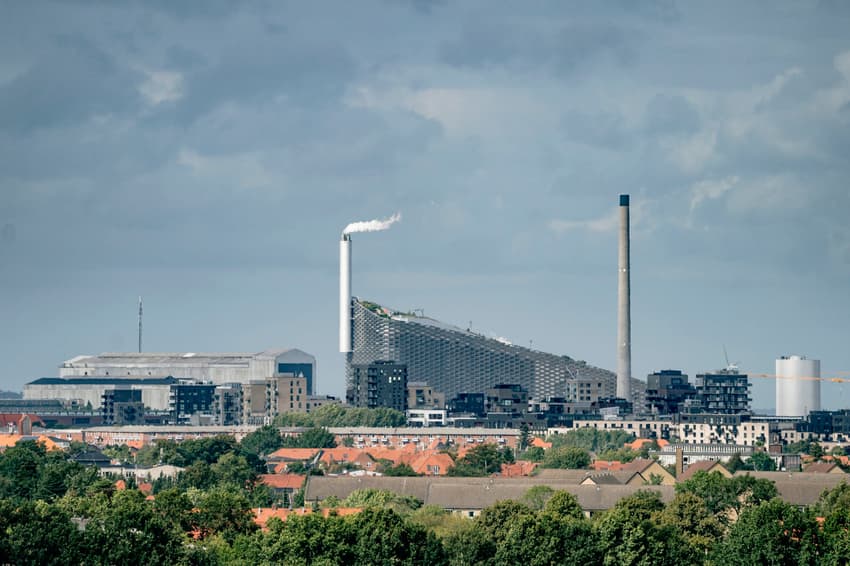Danish waste company forced to import rubbish from abroad

The high-tech Amager Bakke waste-to-energy plant is running out of rubbish supplies from the local region and will have to start importing from outside Denmark.
When ARC's incinerator, Amager Bakke, opened in March 2017, it was one of the most modern green energy plants Denmark had ever seen.
The high-tech waste plant is designed to destroy huge amounts of trash from Copenhagen and convert it into energy which is used to heat thousands of homes in the region. It is one of two plants which play a major role in Copenhagen's ambitions of meeting zero carbon requirements by 2025.
But now, ironically, as municipalities have become very efficient in waste sorting and recycling, the plant is quickly running out of its most important raw material: rubbish.
This has impacted the plant's finances, so now the five municipalities behind ARC have agreed on a plan that will both improve the economy and provide heat for the capital's homes: waste from surrounding countries will be shipped to Denmark and burned at the Amager Bakke plant.
READ ALSO: EU countries need better recycling, Copenhagen agency finds
Until now, the owner municipalities had blocked ARC's ability to source waste through imports, but the agreement provides a waiver to allow imports to be increased until the end of 2025 to keep the furnaces running.
In a press release, the five owner municipalities state that the increased imports will also increase CO2 emissions - but: “The alternative is that the municipalities will have to recycle less waste, that ARC's finances will be worse - and even that there may be a need to import gas, which comes from Russia, among other places.”
Comments
See Also
When ARC's incinerator, Amager Bakke, opened in March 2017, it was one of the most modern green energy plants Denmark had ever seen.
The high-tech waste plant is designed to destroy huge amounts of trash from Copenhagen and convert it into energy which is used to heat thousands of homes in the region. It is one of two plants which play a major role in Copenhagen's ambitions of meeting zero carbon requirements by 2025.
But now, ironically, as municipalities have become very efficient in waste sorting and recycling, the plant is quickly running out of its most important raw material: rubbish.
This has impacted the plant's finances, so now the five municipalities behind ARC have agreed on a plan that will both improve the economy and provide heat for the capital's homes: waste from surrounding countries will be shipped to Denmark and burned at the Amager Bakke plant.
READ ALSO: EU countries need better recycling, Copenhagen agency finds
Until now, the owner municipalities had blocked ARC's ability to source waste through imports, but the agreement provides a waiver to allow imports to be increased until the end of 2025 to keep the furnaces running.
In a press release, the five owner municipalities state that the increased imports will also increase CO2 emissions - but: “The alternative is that the municipalities will have to recycle less waste, that ARC's finances will be worse - and even that there may be a need to import gas, which comes from Russia, among other places.”
Join the conversation in our comments section below. Share your own views and experience and if you have a question or suggestion for our journalists then email us at [email protected].
Please keep comments civil, constructive and on topic – and make sure to read our terms of use before getting involved.
Please log in here to leave a comment.